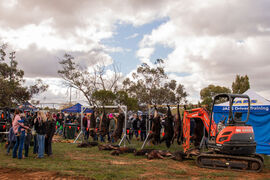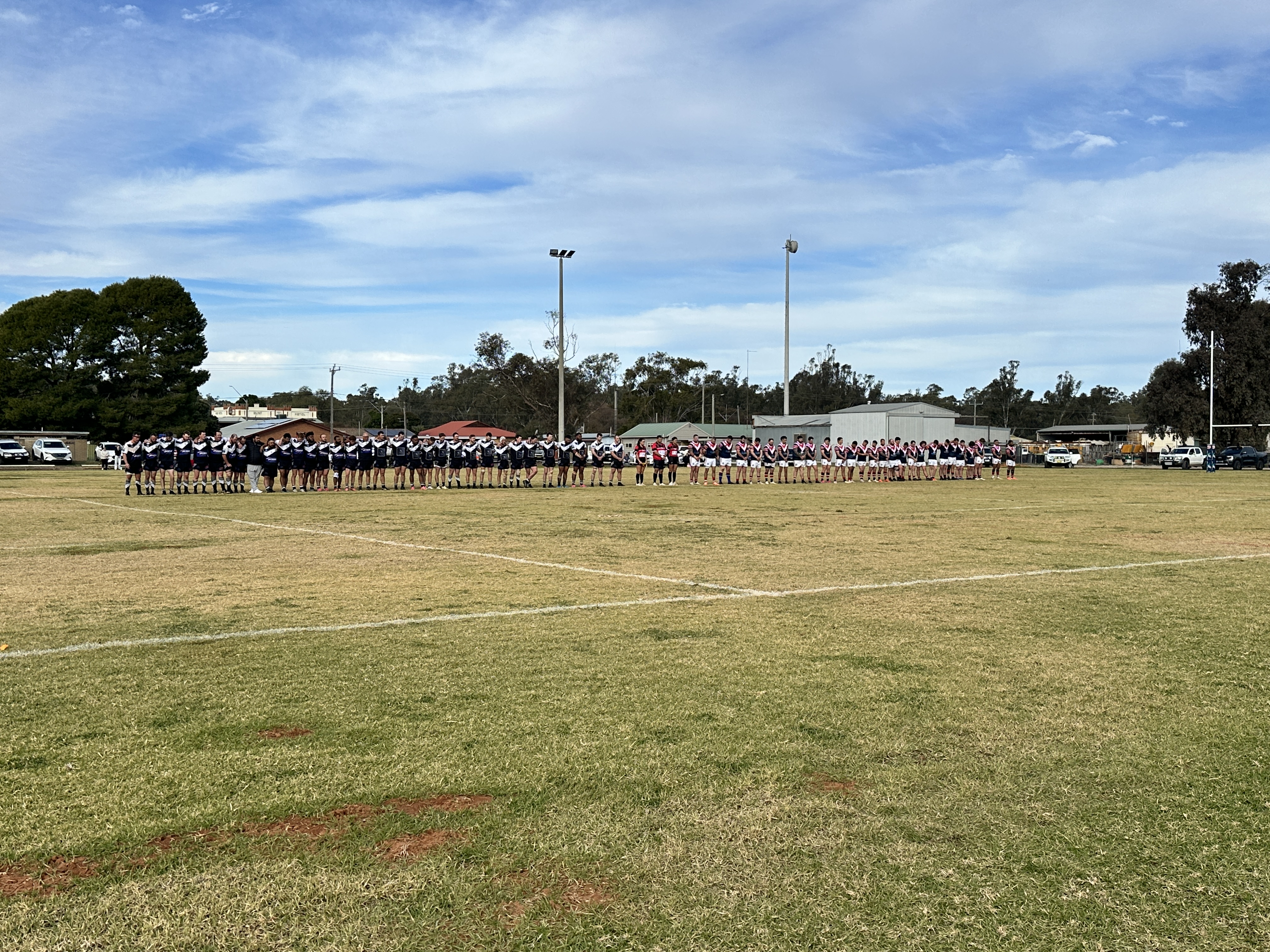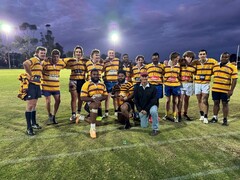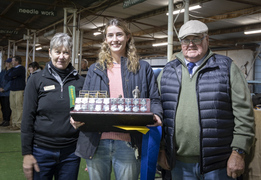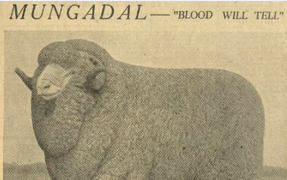Margaret Tucker of Griffith recognised in June Long Weekend honours
Kimberly Grabham
26 June 2025, 5:00 AM
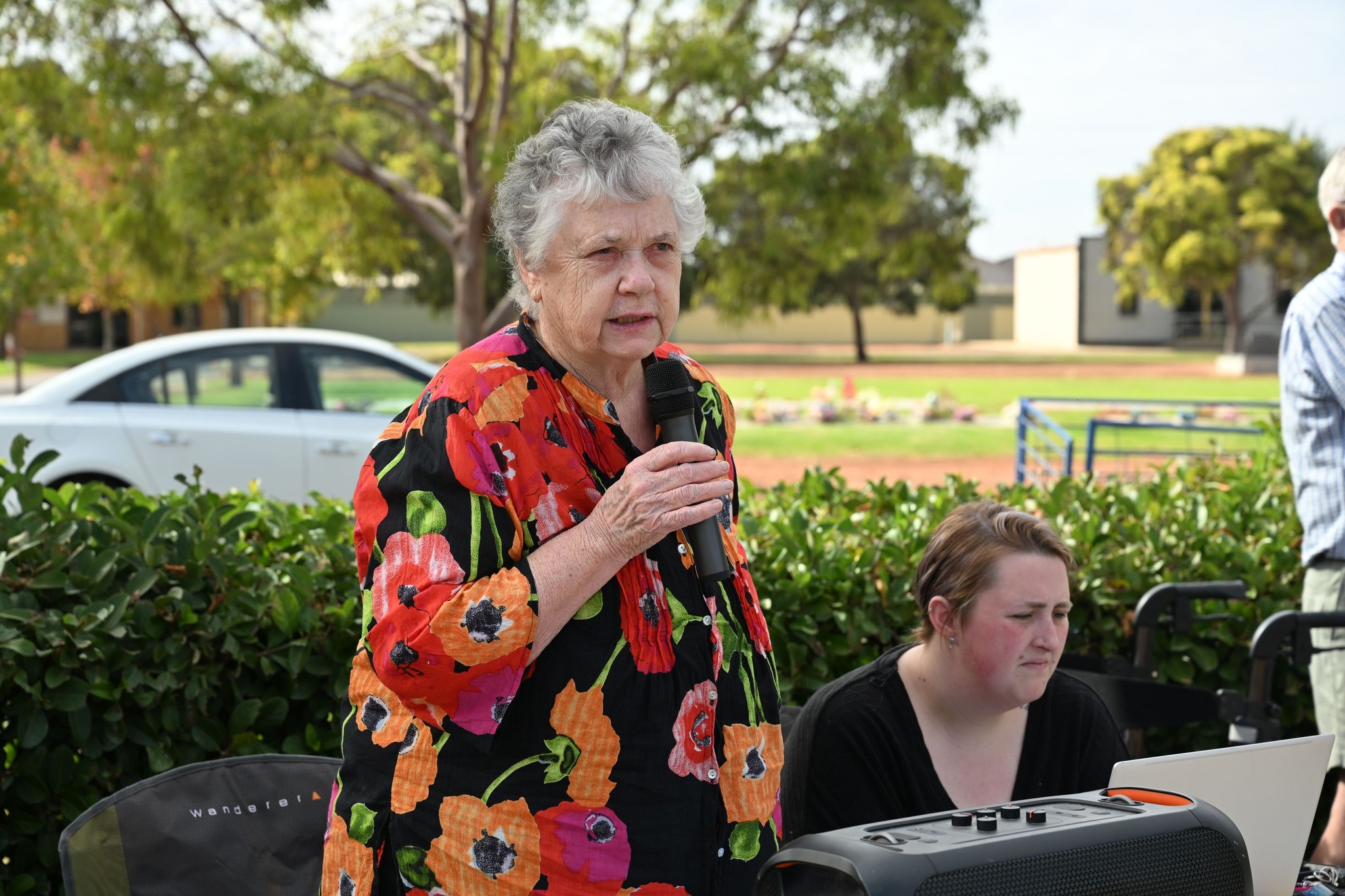
Margaret Tucker's quiet mission to honour forgotten veterans
Picture this: you're typing up obituaries for the local genealogy society, and a pattern starts to emerge. Name after name of ex-servicemen and women, their military service noted in their final farewells, but when you visit the cemetery, their graves tell a different story. No marker. No recognition. Nothing to show they served their country.
That's exactly what happened to Margaret Tucker twelve years ago in Griffith, southern New South Wales. And being Margaret, she couldn't just let it slide.
"I then started the process of marking their graves which was very hard to do," she recalls. "There was a lot of red tape involved because you need to be a family member to touch the grave and they wouldn't let me."
Anyone else might have given up there. But Margaret Tucker isn't anyone else.
The 69-year-old rolled up her sleeves and got to work. She tracked down families, enlisted help from the local RSL, navigated bureaucratic hurdles that would have defeated lesser souls. With determination that's become her trademark and a grant from the Ex-Servicemen's Club, she eventually saw 64 plaques placed on veterans' graves at Griffith Cemetery.
But Margaret wasn't finished. Not by a long shot.
What started as a mission to mark unmarked graves permanently has blossomed into something much bigger—an annual tradition that brings the whole community together. Every year ahead of Anzac Day, Margaret organises working bees to place small white crosses with poppies attached on more than 1,000 veterans' graves.
"The saying is 'put a flower on the grave of an ex-serviceman or woman'," Margaret explains, as if it's the most natural thing in the world.
The tradition has grown beyond anything she imagined. School children from places like Beelbangera Public School join in, laying flowers on the graves marked with white crosses. Community members pitch in. Young veterans lend their hands. What began as one woman's quiet mission has become Griffith's own special way of remembering.
Kristie Symonds, principal at Beelbangera Public School, brought two student leaders to participate this year. She sees the deeper value in what Margaret has created, especially with international conflicts like Ukraine, making war feel very real to young people again.
"It's very good for them to realise that our history is made up from our past and things that we've done in our past affect our future," she said. "It also teaches the younger generation respect for people who have been in the past and to acknowledge their contribution to our society today."
For Margaret, though, it's not about recognition or praise. Her humility shines through when she talks about her work: "I don't feel it's that special, I just feel it's something important to me, that's all."
That quiet understatement is so typical of people who do genuinely meaningful work. They don't see themselves as heroes—they just see something that needs doing and get on with it.
But others have noticed. Margaret's tireless and dedicated work commemorating fallen and near-forgotten Anzac soldiers earned her a Medal of the Order of Australia—recognition that's richly deserved for someone who has given so much of herself to honour others.
Every year, the tradition grows. More volunteers, more school children, more community members understanding that remembrance isn't just about the big ceremonies and official commemorations. Sometimes it's about small white crosses and flowers placed with care on graves that might otherwise be forgotten.
"War's a bad thing and it shouldn't happen, but if it does happen people need to be remembered for that," Margaret said.
In a time when the world feels increasingly divided, there's something profoundly moving about a community coming together to remember those who served. Margaret Tucker started with obituaries and unmarked graves; she's created something that connects generations and keeps memory alive.
The white crosses appear each year at Griffith Cemetery like clockwork, a testament to one woman's refusal to let service go unrecognised. In her own understated way, Margaret has ensured that in her corner of New South Wales, no veteran is forgotten.
Source: ABC News
NEWS
SPORT
RURAL

